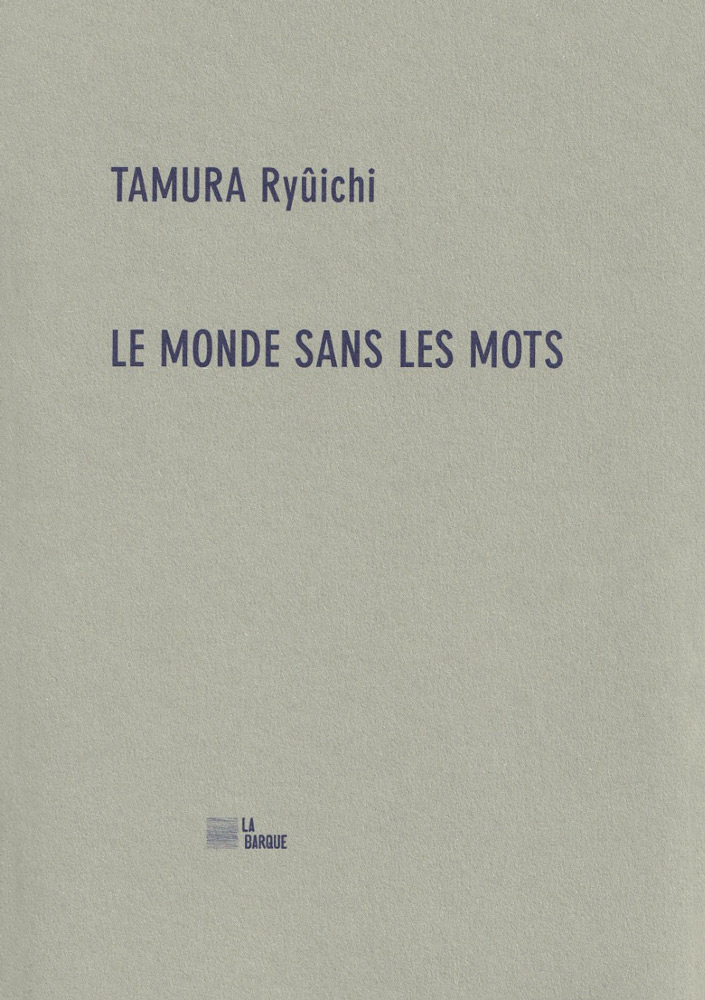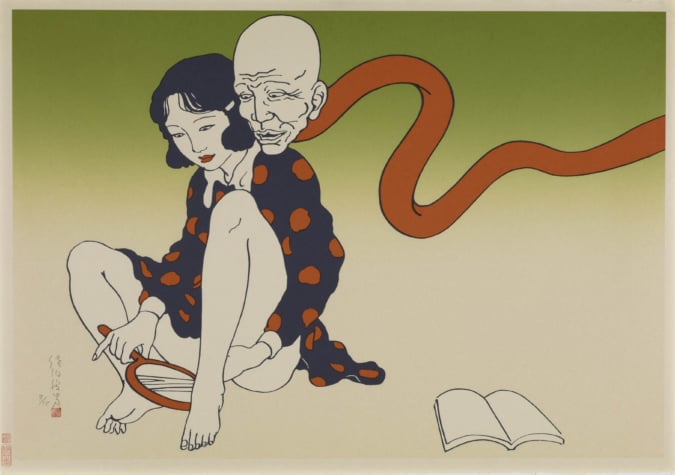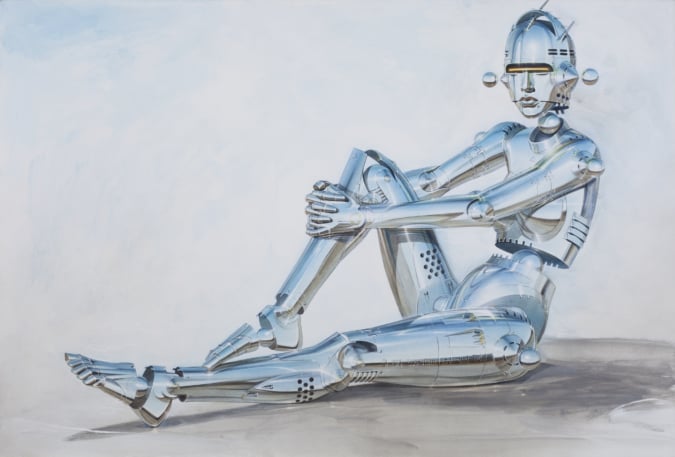‘World Without Words’, a Mise-en-Abyme of Language
In this collection of poems, Ryuichi Tamura, a major figure in contemporary Japanese poetry, examines language and its violence.

© La Barque
‘My poetry is a simple thing’, Ryuichi Tamura declared in one of his poems. A simple thing that, in the collection World Without Words, achieves an incredible feat: sketching the outline of a world without words, while using the latter to do so.
Ryuichi Tamura is one of the most important figures in contemporary Japanese poetry. Born in 1923, he graduated from the literature department at Meiji University in Tokyo, where he met students and poets with a close interest in modernism.
He enrolled in the Imperial Navy in 1943 and returned to his first love of literature four years later when he revived Arechi, a literary magazine. Thus, he got involved in poetry, in parallel to working as a translator of English language novels, including the works of Agatha Christie, and, in the space of a few years, became one of the figureheads of contemporary Japanese poetry.
A collection of his first works
Ryuichi Tamura constructs his poems around themes that are prevalent throughout his body of work: violence, survival and language. The poet addresses semiology, the use of language to create meaning. However, he counteracts the tough nature of his favourite subjects with the description of a procession of creatures in which animals and plants try to re-establish the shape of a world where language sacrifices nothing.
The Four Thousand Days and Nights (1956), World Without Words (1962) and A Green Thought (1967) were his first works and are included in the collection World Without Words, with the addition of two other long poems: ‘Perishable substance’ and ‘A study of fear’.
World Without Words (1971), a collection of poems by Ryuichi Tamura published by Ceres Press.
TRENDING
-
A House from the Taisho Era Reveals Its Secrets
While visiting an abandoned building, Hamish Campbell discovered photographs the owner had taken of the place in the 1920s.

-
The Taboo-Breaking Erotica of Toshio Saeki
The master of the 1970s Japanese avant-garde reimagined his most iconic artworks for a limited box set with silkscreen artist Fumie Taniyama.

-
With Meisa Fujishiro, Tokyo's Nudes Stand Tall
In the series 'Sketches of Tokyo', the photographer revisits the genre by bringing it face to face with the capital's architecture.

-
Masahisa Fukase's Family Portraits
In his series ‘Family’, the photographer compiles surprising photos in which he questions death, the inescapable.

-
Hajime Sorayama's Futuristic Eroticism
The illustrator is the pioneer for a form of hyperrealism that combines sensuality and technology and depicts sexualised robots.





